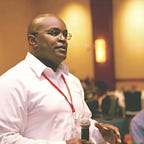Ruby Bridges, Cancel Culture & the Denial of American History
This morning, I found myself thinking about the story of Ruby Bridges, the child who integrated the William Frantz Elementary School, in New Orleans, in 1960. Hers has always been a story of particular interest to me — and not simply because of my geographic proximity to where the event took place, but perhaps because of the enormity of courage taken by a child to become a trailblazer. I have often wondered what lessons we could draw from her example, and it has occurred to me that there is one we might have missed. And that lesson, sixty-two years later, might be one from which we stand to learn the most.
We all know this story, and we all recognize the image. Ruby Bridges was forced to learn about man’s capacity for cruelty at an early age. Only six years old, she needed a security detail of field marshals when she went to school. A mob of adults welcomed the child with jeers and threats outside of that elementary school. Having never attended school with children of color, other young students immediately followed the lead of the white adults; most kept their distance from her, while others drew racist graffiti on the walls of her isolated classroom. For a year, in fact, only one teacher agreed to teach her. Even still, Ruby Bridges returned to school, day after day, with the understanding that her education mattered more than what made her uncomfortable. She went on to become a celebrated icon of the civil-rights movement, writing a trove of books and articles, while also receiving high honors from Presidents and esteemed organizations across the decades. She even founded The Ruby Bridges Foundation, dedicated to the promotion of equality and equal treatment of all people.
Yep. Those hecklers outside of William Frantz Elementary School be damned.
Today, part of this lesson escapes our attention. I am speaking, rather specifically, about the determination of a young child (and, of course, by her family) to stay the course, even when the challenge she faced seemed so insurmountable.
Today, unlike Ruby Bridges who kept going, many of us want to turn to the challenge and find a way to erase it from our path. From one side of the political spectrum, for example, some Americans want to cancel nearly anything that doesn’t fit into their perception of a polite world. Meanwhile, others from the opposite side of that spectrum want to gloss over the painful truths of our country’s history, as if those truths do not matter and are not part of what makes us who we are today. Yes, truths like the experiences of Ruby Bridges. Each of these groups share a common, if not acknowledged, mindset: you must silence what you don’t agree with or what makes you uncomfortable. But that isn’t the way to deal with the ugliness of our past or our present.
What Ruby Bridges taught us all, as the six-year-old manifestation of America’s integrated destiny, was that a purpose-driven and plural America has the strength and stamina to rise above and outlive this country’s ugliness. Hate and division will always seem to be with us, sadly enough, but we don’t have to try to mute it or pretend that it never existed. Rather, if we just stay focused on our common goals, if we accept our circumstances with honesty and maturity and thoughtfulness, and if we resolve to keep achieving in spite of the distractions posed old or new challenges — yes, we can, indeed, reach the mark ahead of us.
As painful as it is, our history as a nation is a great one. From the scars of that pain come some of the most powerful lessons informing our lives today. It would be unwise for any of us to silence them, to ignore them, or to fear teaching them. It would be equally unwise for us to not institute those lessons as a part of our daily routine. Looking back on the historic, world-changing actions of her younger self, Ruby Bridges Hall later said this: “I now know that experience comes to us for a purpose, and if we follow the guidance of the spirit within us, we will probably find that the purpose is a good one.” Indeed, we all would benefit greatly from a better understanding of our collective experiences, both past and present, if we are to make this society even better than it is today. And, no, that cannot happen if we are trying to whitewash the past or cancel the present.
God bless this great Republic, and God bless all those who have worked, and still work, in the name of equality and justice, to build a fair and inclusive society.
